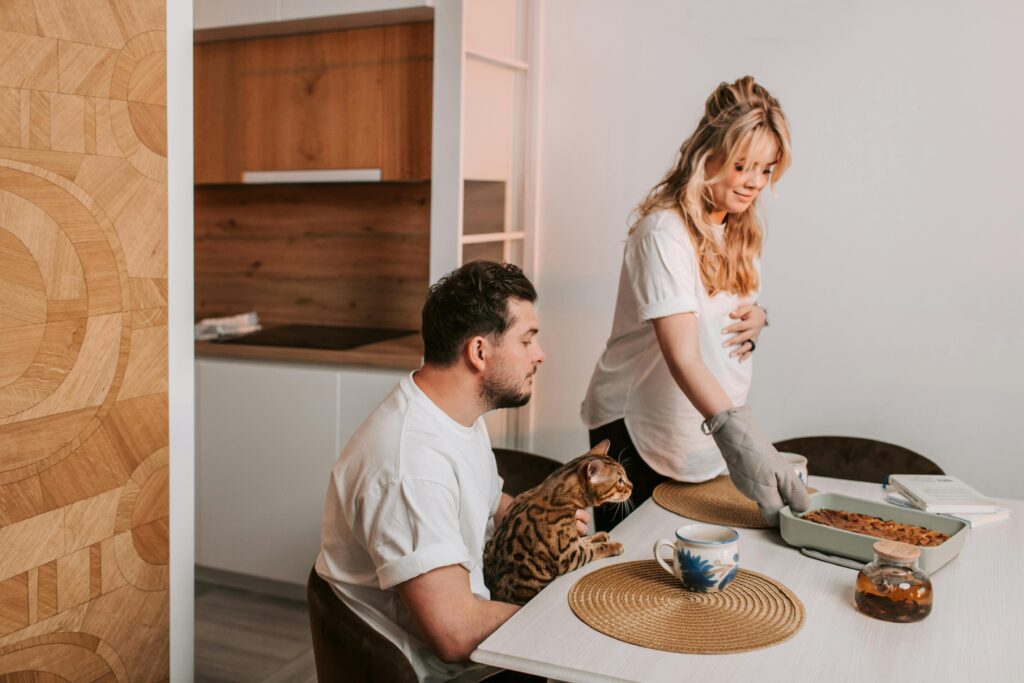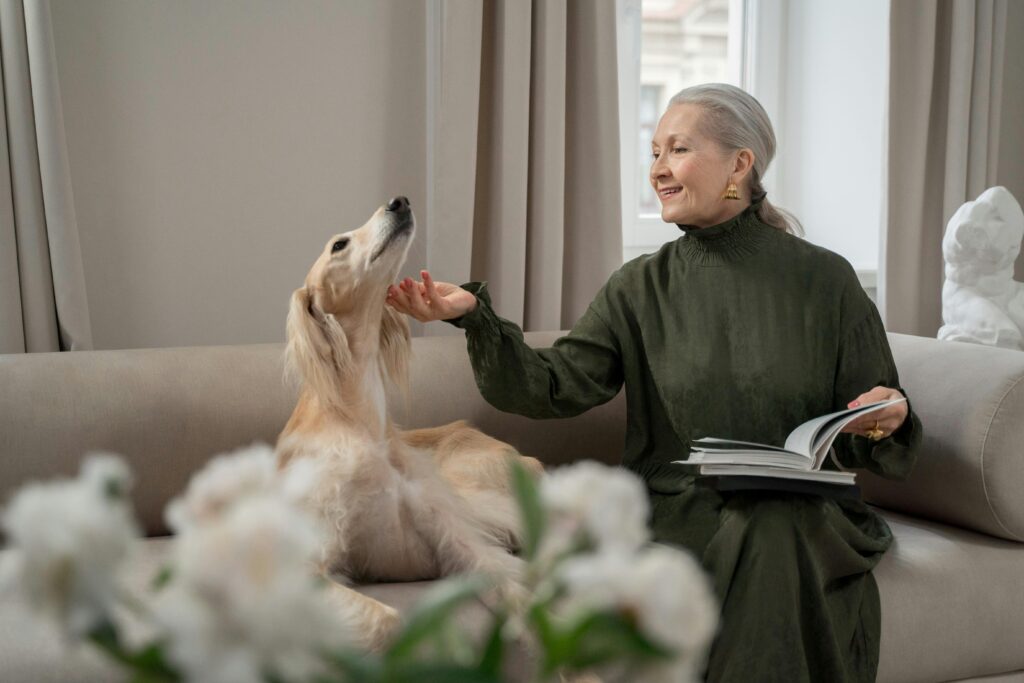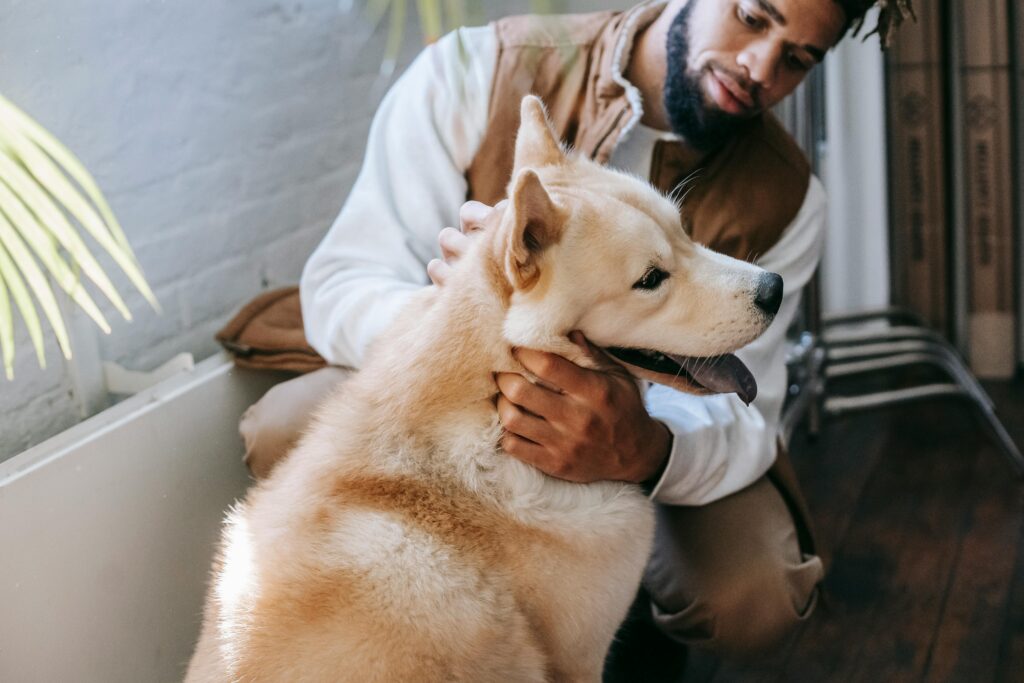They are loved family members who bring us joy, comfort, and company. Pets are more than just animals. Like people, pets must stick to the same daily routines to stay healthy, happy, and busy. If they form the right habits, they will live longer and have a better quality of life. By following these simple steps, you can make the best daily habits for your pet and improve its health. These tips can help if you love dogs, cats, or small pets.

Importance of Daily Exercise for Pets
Regular Physical Activity Keeps Pets Fit
One of the best ways to keep cats healthy is to give them daily exercise. For dogs, this can mean walking, fetching, or running in the park. Cats also need to be busy, so they like climbing cat trees, chasing toys, or playing with other cats. Regular exercise keeps you from getting fat, builds muscle, and keeps your heart healthy.
Exercise Helps Reduce Stress and Anxiety
Pets get stressed out just like people do. They might become antsy, nervous, or even destructive if they have nothing to do. A daily workout routine helps you get rid of stress and bad habits. When dogs walk twice a day, they tend to be calmer inside, and when cats play every day, they are less likely to scratch furniture or shed too much.
How to Choose the Best Activity for Your Pet
Different pets like different kinds of things to do. Sometimes a small dog likes short walks better than a Labrador, which needs longer runs. Some cats like puzzle feeders better than laser toys. Please consider how your pet acts and change the training schedule to fit their needs.
Feeding Habits That Support Long Term Health
Stick to a Consistent Feeding Schedule
Giving pets daily food simultaneously helps keep their energy and stomach in check. Most dogs do better with two meals a day, while cats may do better with several smaller meals during the day. A pattern keeps pets from eating too much and helps owners watch their pets’ appetites for early signs of health problems.
Pick Good Food for Your Pet
Food choices directly impact health. Find foods that have the right amount of protein, good fats, and vitamins you need. Stay away from foods that have a lot of fillers, fake colours, or preservatives. Food and water are very important, so fresh water should always be nearby.
Control Portion Sizes to Prevent Obesity
People often eat too much, which can cause weight gain and health problems. Use a measuring cup for accuracy and do what your vet says. You should not give your pet too many treats; they should not make up more than 10% of their daily food.
Grooming as Part of Daily Care
Brushing Keeps Fur and Skin Healthy
Your pet’s coat will stay clean and shiny if you brush it regularly to remove loose hair, dirt, and knots. Regular brushing also helps spread natural oils and keeps hair from getting matted. For cats, cleaning gets rid of hairballs, and for dogs, it keeps them from losing fur.
Things You Need for Bathing and Cleaning
Pets do not need to be bathed every day, but they should have a routine for keeping clean. It is important to clean your dog’s ears when they need it and wipe their paws after walks. Also, look for ticks or fleas. Cats clean themselves most of the time, but owners should still make sure their cats are clean.
Trimming nails and taking care of teeth
Nails that are too long can hurt and make it hard to walk. When you trim your dog’s paws often, they stay healthy. Tooth care is just as important. Your pet’s gums and breath will remain clean if you brush their teeth daily or give them oral chews.
Mental Stimulation and Enrichment
Playtime Boosts Brain Health
To keep your brain sharp, do fun things like you work out your body. When pets play games with you, like fetch, hide and seek, or food puzzles, they are likelier to think and keep their minds busy.
Training Sessions Build Confidence
Pets get daily training that teaches them new things and how to behave well. Giving treats or praise is one way to use positive feedback to make learning fun. You and your pet will have a stronger bond when you train it.
Variety Keeps Pets Engaged
If pets live in the same place all the time, they might get bored. You can make obstacle courses at home, switch up the toys, or add new smells. Pets are happy and smart when they get many things to do.
The Role of Sleep in Pet Health
Pets Need Consistent Sleep Routines
Pets do better when they sleep simultaneously every night, just like people do. Dogs sleep 12 to 14 hours daily. , while cats can sleep sixteen. Giving them a safe, quiet, and comfortable place to sleep will help them get a good night’s rest.
Comfortable Sleeping Areas Matter
Buy your pet a good bed that will keep their joints healthy. Younger dogs like soft pillows, while older dogs might need orthopedic beds. Make sure you clean your sheets often to keep dirt and bugs away.
Sleep Affects Behaviour and Energy Levels
Pets that don’t get enough rest can get cranky, antsy, or even mean. When pets get enough rest, they are healthier, more active, and easier to train.
Preventive Health Care and Vet Visits
Daily Health Checks at Home
If you check your pet daily for signs of sickness, you can find problems early. Check for changes in your hunger, lumps that do not seem right, or trouble moving. It is also important to monitor bathroom habits, since changes can signify health problems.
Why regular vet visits are important
Regular trips to the vet are important even if your pet seems healthy. Checkups with vets once or twice a year let them find early signs of illness. As part of regular care, you should also get shots, get rid of parasites, and have dental checks.
Keep Medical Records Organised
Keeping a file with health notes, medications, and records of vaccinations helps you keep track of progress and makes trips to the vet easy. Maintaining records in order will ensure your pet never misses an important treatment.
Social Interaction and Bonding
Quality Time Strengthens Relationships
When you spend time with your pet every day, you build trust and a stronger bond. Pets feel safe and loved when cuddling, grooming, or playing with other pets.
Communication Through Body Language
Meeting other dogs at parks or play dates is good for many dogs. Some cats like living with another pet, even if they would rather be alone. Making friends lowers fear and improves behaviour.
Use of Body Language to Communicate
Read your pet’s signs, like when their ears move, tail moves, or they make noises. This will help you figure out what they need. People who notice these signs value each other more and feel less stressed.
Creating a Safe and Clean Environment
Clean up the places you live
Pets are safe from germs, smells, and bugs when you clean every day. Pet hair should be wiped down, food bowls and litter boxes should be cleaned often.
Get rid of household dangers
Things like cleaning tools, chocolate, and small toys that you find around the house can be dangerous. Making your home pet proof keeps your dogs safe and stops accidents from happening.
Allow people to get fresh air and sunlight
Your pet will be healthier if they get outside light and air. Dogs do better when walking outside, and cats like safe window sills or fenced in cat parks.
Hydration and Fresh Water Access
Give clean water all the time
There should always be a clean bowl of water close by. Fill it up again and wash it every day to keep germs away. Your health may suffer greatly from dehydration.
Encourage Drinking Habits
Some pets do not drink enough water. Water pumps, scattered bowls, or wet food are all great ways to hydrate your pet.
Watch for Signs of Dehydration
Loss of energy, dry skin, or sunken eyes are all signs of dehydration. A simple but important part of daily care is ensuring your pet drinks enough water.
Building a Consistent Daily Routine
Pets Thrive on Structure
When pets know what to expect every day, they feel safer. They are calmer and less nervous when fed, walked, and played with regularly.
A good balance of work and rest
Pets can get tired from too much exercise or too little activity and get bored. Getting enough movement, play, and rest is good for your health.
Adjusting Routines as Pets Age
Puppies and babies may need more play time and to eat more often. Older pets, on the other hand, need softer exercise and special food. By changing the pattern, they can stay comfortable at all stages of their lives.
Conclusion
Providing your pet with food and housing is just one aspect of pet care. You also need to ensure they have daily habits that are good for their health and happiness. Getting enough movement, food, grooming, mental stimulation, and trips to the vet are all very important. Setting up regular habits can help your pet stay healthy, feel less stressed, and live a longer, happier life.



